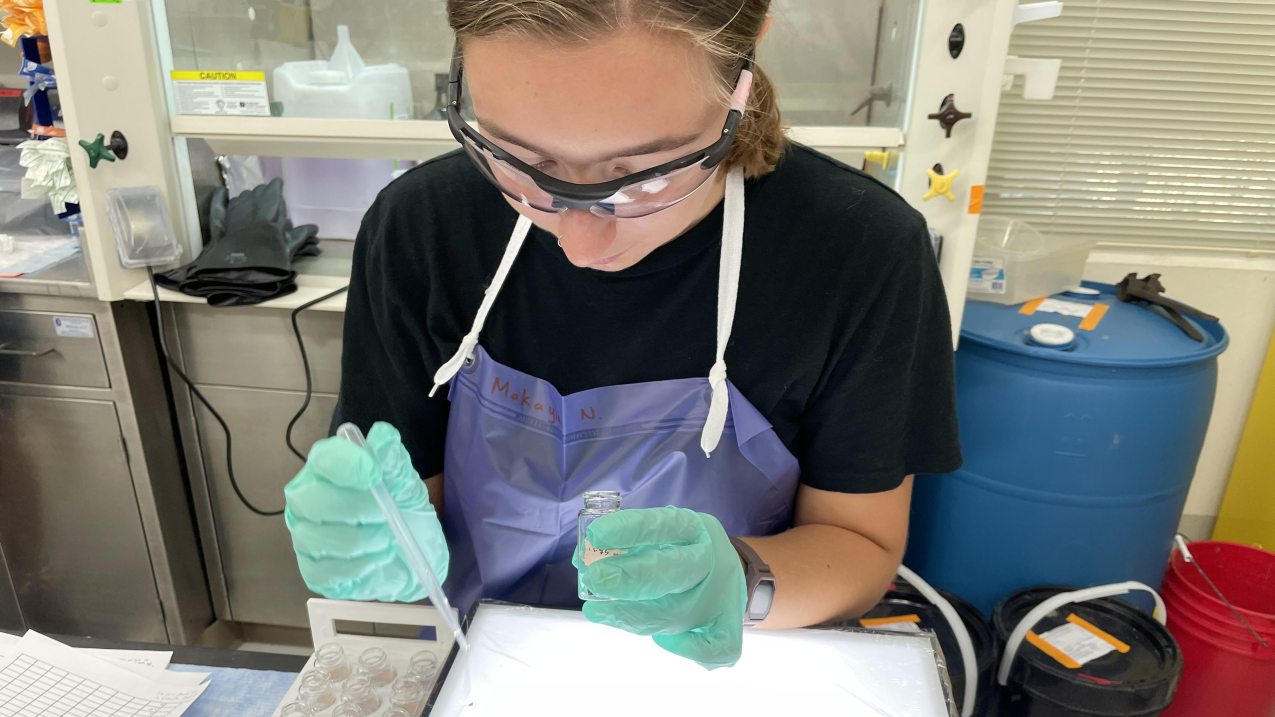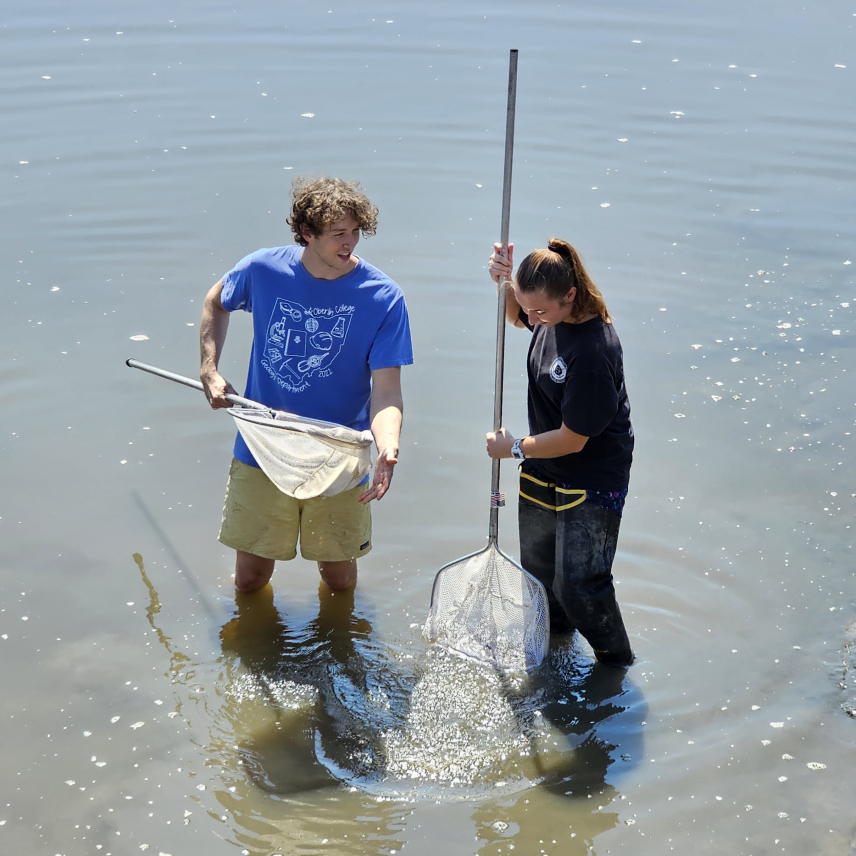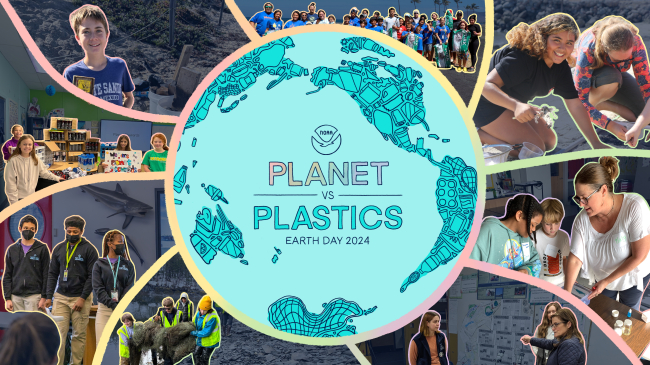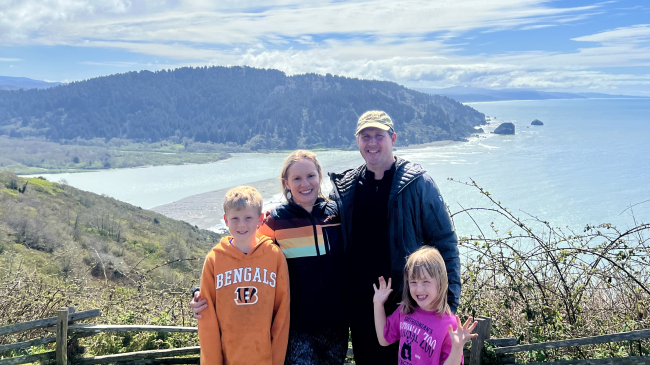Per- and polyfluoroalkyl substances (PFAS) are chemicals created by humans that are notorious for being resistant to biodegradation and have been found in ground, surface, and drinking water. Makayla Neldner, a 2022 Hollings scholar, spent her summer internship at NOAA’s Hollings Marine Lab in Charleston, South Carolina, researching how two PFAS compounds, PFHxS and PFHxA, affected the life cycle of larval grass shrimp (Palaemon pugio).

Makayla Neldner, a 2022 Hollings scholar, studied how some PFAS compounds affect the lifecycle of larval grass shrimp (Palaemon pugio) during her summer internship with the Hollings Marine Laboratory. Here, she looks for grass shrimp molts during a PFHxS toxicity test. (Image credit: Pete Key)
Grass shrimp are common in East Coast tidal marshes. They play an important role in their ecosystems and any changes to their population can have an overall impact on their ecosystem. Makayla’s experiment focused on how PFAS may impact larval grass shrimp, which could ultimately affect the grass shrimp population.
Makayla exposed 24-hour old larval grass shrimp to PFHxS and PFHxA for 96 hours to look at mortality before placing them in seawater to continue monitoring their development. She found that PFHxS, which is found in stain-resistant textiles, firefighting foams, and cleaning products, caused grass shrimp development to slow. PFHxA, which is found in paper products and stain-resistant textiles, had no measurable effect on the larval grass shrimp. These findings can further inspire research into how these compounds affect the grass shrimp long term and through multiple generations.

Along with developing her laboratory skill sets, Makayla was able to spend the summer making new connections with the laboratory staff. “My biggest advice for future scholars is to take advantage of the professionals at your internship site and make connections. Everyone that I talked to was more than happy to talk about their professional journey and answered any questions I had about mine. It has helped me become more confident in my future career path,” said Makayla.
Everyone that I talked to was more than happy to talk about their professional journey and answered any questions I had about mine. It has helped me become more confident in my future career path.
Makayla is a 2022 Hollings scholar studying biology at Eckerd College.



